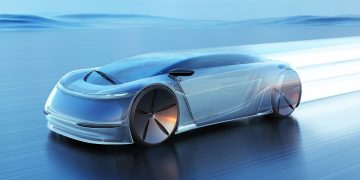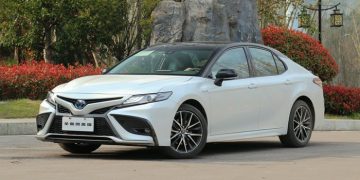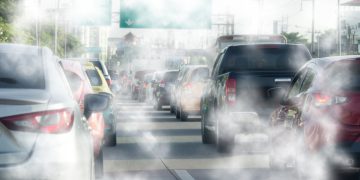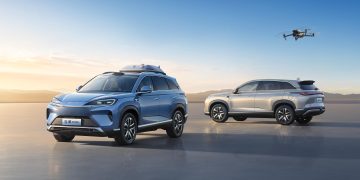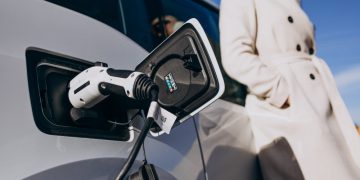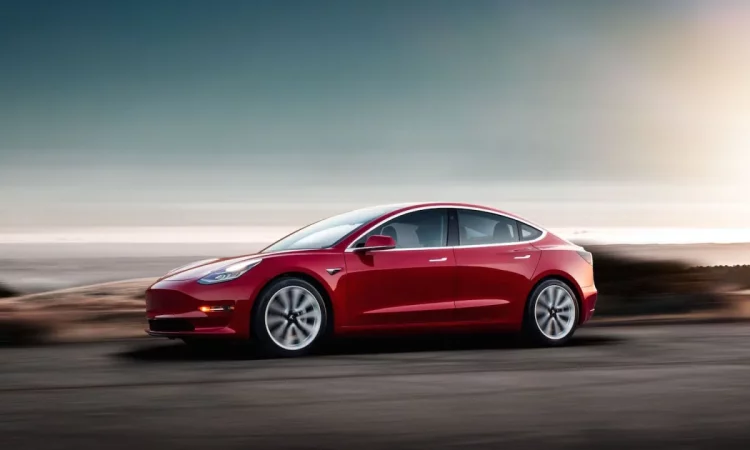Introduction: The Shift Toward Electric Vehicles in the Automotive Industry
The automotive industry has undergone a seismic shift in recent years, as electric vehicles (EVs) move from a niche market to the mainstream. For over a century, internal combustion engine (ICE) vehicles powered by gasoline and diesel have dominated the global automotive landscape. However, rising environmental concerns, stricter government regulations, and shifting consumer preferences are forcing traditional auto manufacturers to adapt or risk becoming obsolete.
In the face of this electric vehicle revolution, established automakers are rethinking their business models, investing in new technologies, and transforming their strategies to incorporate EVs into their portfolios. As these companies navigate the transition from internal combustion engines to electric powertrains, they face a host of challenges ranging from technological advancements and supply chain shifts to consumer acceptance and regulatory pressures.
This article will explore how traditional auto manufacturers are adapting to the electric vehicle revolution. It will discuss the strategies these companies are adopting, the challenges they are encountering, and the broader impact of this transformation on the automotive industry.
The Growing Demand for Electric Vehicles
The increasing demand for electric vehicles is driven by several key factors. Firstly, there is growing concern about climate change and the environmental impact of transportation. The transportation sector is one of the largest contributors to global carbon emissions, and governments around the world are setting ambitious targets to reduce these emissions. For example, the European Union has committed to reducing carbon emissions by 55% by 2030, with a focus on zero-emission vehicles.
Secondly, advancements in EV technology, particularly in battery development, have made electric vehicles more affordable, efficient, and practical for consumers. Battery costs have dropped dramatically over the past decade, and electric vehicles are now more competitive with traditional cars in terms of price and range. Consumers are increasingly willing to make the switch to EVs as they offer lower operating costs, fewer maintenance requirements, and zero tailpipe emissions.
Finally, the expansion of charging infrastructure and the availability of government incentives are making EVs more accessible and convenient for consumers. As these factors continue to align, the demand for electric vehicles is expected to increase rapidly, prompting traditional automakers to pivot their business strategies to stay competitive.
The Response of Traditional Automakers: Shifting Strategies and Investments
In response to the growing demand for electric vehicles, traditional automakers are making significant investments and adjustments to their business models. These companies are not just producing EVs as an afterthought or as limited editions; instead, they are shifting their focus to integrate electric vehicles into their broader product portfolios. Here are some key strategies that established automakers are adopting to navigate this transition:
1. Investing in EV Research and Development (R&D)
One of the first steps traditional automakers are taking to adapt to the EV revolution is to invest heavily in research and development. Developing cutting-edge electric vehicle technology is essential to remain competitive in the market. This includes advancements in battery technology, electric drivetrains, and vehicle software.
Automakers such as Volkswagen, General Motors (GM), Ford, and Toyota are pouring billions of dollars into R&D to develop new electric vehicle models and improve battery efficiency. For instance, Volkswagen has committed to spending over €35 billion on electric vehicle development and is aiming to have 70 electric models in its portfolio by 2030. Similarly, GM has pledged to stop producing internal combustion engine vehicles by 2035, transitioning to an all-electric fleet.
2. Electric Vehicle Platforms and Modular Designs
Another key strategy for traditional automakers is the development of modular electric vehicle platforms. A modular platform allows manufacturers to design a single platform that can be used for multiple models, making it more cost-effective to produce a range of electric vehicles.
For example, Volkswagen’s MEB platform is designed specifically for electric vehicles and is being used across a variety of models, from compact cars to SUVs. This allows the company to streamline production and reduce costs while offering a broad range of electric vehicles to meet consumer demand. Other manufacturers, such as Ford with its Mache-E platform, are also following suit by creating platforms that can be adapted for different vehicle types, helping to expedite the development and production of EVs.
3. Partnerships and Collaborations
To accelerate the transition to electric vehicles, traditional automakers are increasingly entering into strategic partnerships and collaborations with technology companies, battery manufacturers, and other stakeholders in the EV supply chain. These partnerships allow automakers to leverage external expertise and resources, ensuring they can remain competitive in a rapidly evolving market.
For instance, Ford has partnered with the electric vehicle startup Rivian to develop electric trucks and SUVs. Similarly, General Motors has teamed up with LG Chem to produce batteries for its upcoming electric models. These collaborations help automakers share the risks and costs associated with developing new technologies and scaling up production.
4. Electrifying Existing Models and Brands
In addition to developing new, purpose-built electric vehicles, many traditional automakers are electrifying their existing models and brands. This involves converting popular internal combustion engine models into electric versions. For example, Ford’s Mustang Mach-E and Volkswagen’s ID.4 are electric versions of their iconic Mustang and Golf models, respectively.
This approach allows automakers to capitalize on the existing brand recognition and customer loyalty of their traditional models while offering a more sustainable and environmentally friendly alternative. Electrifying existing models also helps automakers ease the transition for consumers who are familiar with their products and may be hesitant to make the switch to a completely new electric model.
5. Revamping Manufacturing and Supply Chain Processes
The transition to electric vehicles requires significant changes to manufacturing and supply chain processes. Traditional automakers must invest in new production facilities and retrain their workforce to handle the complexities of electric vehicle assembly, which is significantly different from manufacturing internal combustion engine vehicles.
For example, GM has invested in a new $2.3 billion electric vehicle plant in Michigan to produce its electric Hummer. Similarly, Volkswagen has been ramping up its efforts to build battery factories in Europe to ensure a secure supply of EV batteries. Additionally, automakers are also looking at vertically integrating their supply chains by securing raw materials for batteries, such as lithium, cobalt, and nickel, to reduce reliance on external suppliers and mitigate supply chain disruptions.

The Challenges Faced by Traditional Automakers
While the shift to electric vehicles presents significant opportunities, traditional automakers face several challenges in adapting to the EV revolution. These challenges include technological hurdles, regulatory pressures, and changing consumer behavior.
1. Battery Technology and Supply Chain Constraints
The most significant challenge faced by traditional automakers is the development of battery technology. Battery performance, cost, and availability are crucial factors that determine the success of electric vehicles. While there have been significant advancements in battery technology, automakers still face challenges in producing batteries that are both affordable and efficient.
Supply chain constraints for critical raw materials such as lithium, cobalt, and nickel also pose challenges for automakers. These materials are essential for the production of lithium-ion batteries, and the global supply of these minerals is limited. Automakers are working to secure long-term contracts with suppliers and explore alternatives to reduce their dependence on these materials.
2. Consumer Adoption and Education
Despite the growing interest in electric vehicles, consumer adoption remains a significant challenge. Many consumers are still hesitant to switch to EVs due to concerns about range anxiety, charging infrastructure, and the higher initial cost of electric vehicles.
To address these concerns, traditional automakers are investing in consumer education campaigns and developing solutions to improve the charging experience. Companies are also working to expand charging infrastructure and offer incentives such as tax rebates and leasing options to make EVs more accessible.
3. Transitioning Workforce and Re-skilling
The shift to electric vehicles also requires traditional automakers to reskill their workforce. Electric vehicle production involves different manufacturing processes, from battery assembly to software integration. The transition to EVs will require a workforce with specialized skills in areas such as electrical engineering, battery technology, and software development.
To address this challenge, automakers are investing in training programs for their employees and partnering with educational institutions to develop the necessary talent. This transition may also involve downsizing certain departments related to internal combustion engine technology, presenting a challenge for workforce management.
4. Regulatory and Policy Challenges
Governments around the world are introducing stricter regulations on vehicle emissions and fuel efficiency, which is pushing automakers toward electrification. However, these regulations can also create challenges, particularly in regions where governments are slow to implement EV-friendly policies or offer incentives for electric vehicle adoption.
Moreover, automakers must navigate various regulatory environments across different countries and regions, which can complicate the rollout of electric vehicles. For example, some countries have set aggressive targets for zero-emission vehicles, while others still rely heavily on gasoline and diesel-powered vehicles. These varying regulations can create challenges for automakers in terms of meeting the specific demands of different markets.
The Future of Traditional Automakers in the EV Era
As the electric vehicle revolution accelerates, traditional automakers are being forced to rethink their strategies and adapt to a rapidly changing industry. The transition to EVs presents both challenges and opportunities for these companies, but the overall trend is clear: electric vehicles are the future of the automotive industry.
In the coming years, we can expect traditional automakers to continue investing in electric vehicle technology, expanding their EV portfolios, and partnering with other companies to enhance their capabilities. As more consumers make the switch to EVs and charging infrastructure becomes more widespread, the automotive industry will become increasingly electrified, reshaping the future of transportation.
While traditional automakers face significant hurdles in this transition, they also have the experience, brand recognition, and resources to navigate the changing landscape. The electric vehicle revolution represents an exciting new chapter in the automotive industry, and established automakers are well-positioned to play a central role in shaping this future.



